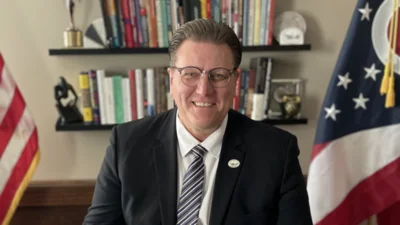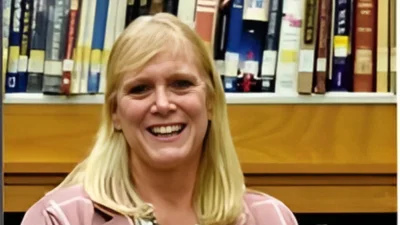In the ongoing debate over the Frasier Solar project in Knox County, the Buckeye Institute has challenged a tax income analysis by an Ohio State University professor, citing concerns over flawed assumptions in its evaluation of the Payment In Lieu of Taxes (PILOT) program attached to the solar development.
Rea S. Hederman Jr., Executive Director of the Economic Research Center and Vice President of Policy at the Buckeye Institute, highlighted discrepancies in OSU’s analysis.
“Our concern remains that the projections that use a low discount rate or do not take into account inflation or provide too rosy of a picture because you're based on a financing that has a very low probability of coming to power,” Hederman told Mount Vernon News.
Hederman emphasized the importance of accurate projections, expressing concerns that unrealistic assumptions could lead to financial setbacks for Knox County.
Despite concerns raised by the Buckeye Institute regarding the fairness of long-term revenue projections, the analysis from provided by OSU Prof. Brent Sohngen defended the tax revenue projections advocated by Open Roads Renewables, the developer of the 1,500+ acre Frasier Solar Project.
Sohngen is Professor of Environmental Economics in OSU’s Department of Agricultural, Environmental and Development Economics. According to OSU’s Changing Climate webpage, Sohngen “conducts research on land use and climate change, carbon trading, and water quality trading”
OSU received a $100,000 grant from Open Roads Renewables on Dec. 5, 2023, less than a week after Knox Smart Development held a town hall at Memorial Theater in opposition to solar projects in the county.
On Jan. 8, OSU produced an analysis opposing the Buckeye Institute’s finding which questioned the viability of PILOT payments, suggesting that they may not adequately compensate for the loss of traditional property tax revenue.
“That was brought to our attention and, and we noticed the interesting timing,” Hederman said.
While the Buckeye Institute argues for property tax valuation, Sohngen's calculations, based on different discount rates and inflation adjustments, suggest that PILOT payments may be financially advantageous under certain scenarios.
Hederman argued the projections provided by Open Road Renewables and the OSU’s Sohngen fail to account for the long-term financial implications, potentially burdening taxpayers and prolonging the county's budget deficit.
He urged Knox County officials to thoroughly scrutinize the analyses presented by Open Road Renewables and Sohngen, emphasizing the need for realistic projections that consider the impact of inflation on future revenues.
“This is a complex financial argument. But it's important because of the tax dollars at risk and that's why the representatives and residents of Knox County should be making sure that the numbers check out,” Hederman said.
The Buckeye Institute's challenge underscores the importance of informed decision-making for local communities.
Trevor W. Lewis, Economic Research Analyst at the Buckeye Institute, added a message for Knox County residents.
“Basically your land has value and you need to consider how that land will be valued long term over the next 40 years. Like, are we giving the developer a sweetheart deal worth it versus a fair deal for Knox County residents?” Lewis told the Mount Vernon News.
The PILOT program, designed to allow communities to collect fixed payments from renewable energy developers instead of property taxes, faced criticism after the Buckeye Institute released an earlier analysis on Nov. 21, 2023.
In its initial analysis, the Buckeye Institute alleged the Open Roads Renewables’ analysis relies on unrealistic assumptions, including an inaccurately low discount rate and underestimated inflation rates.
The Buckeye Institute more recently noted in a press release defending its earlier work that Sohngen’s scenarios fail to align with federal guidelines and industry recommendations, potentially shortchanging Knox County in the long run.
According to the Buckeye Institute, even under the most favorable scenarios, the PILOT payments wouldn't break even with needs-based funding until the 2050s, prolonging the county's budget deficit and burdening taxpayers.
OSU's report refuted the Buckeye Institute's argument favoring traditional property taxes, highlighting the stability and greater long-term revenue offered by the PILOT program.
Following Knox Smart Development’s Nov. 30, 2023 meeting the topic has gained more interest from local residents and townships.
Knox County Commission candidates Barry Lester and Bob Phillips have reported the bulk of the county’s 22 township boards are currently crafting ordinances against solar development.
Knox Smart Development is hosting a second town hall on the topic from 5-6:30 p.m. on Feb. 24th at the Knox Memorial Theater.







